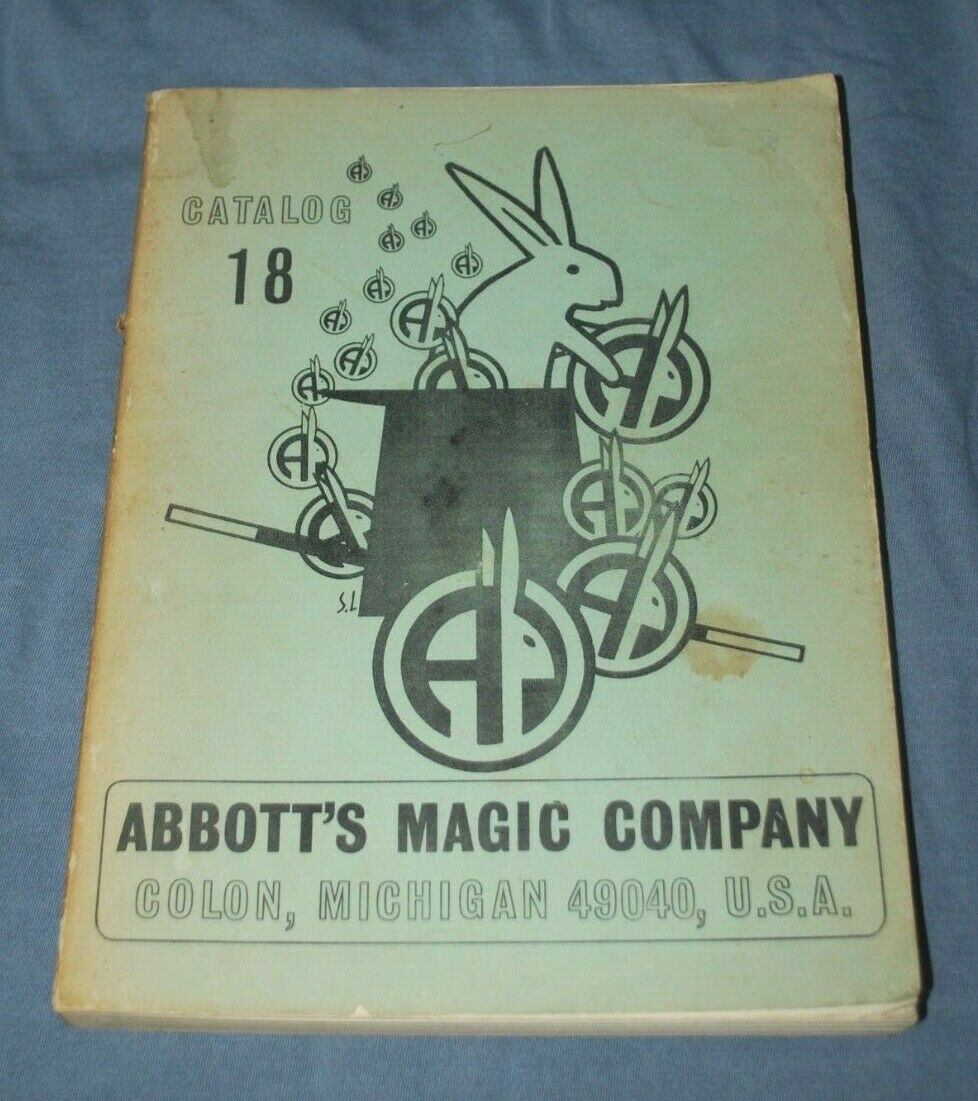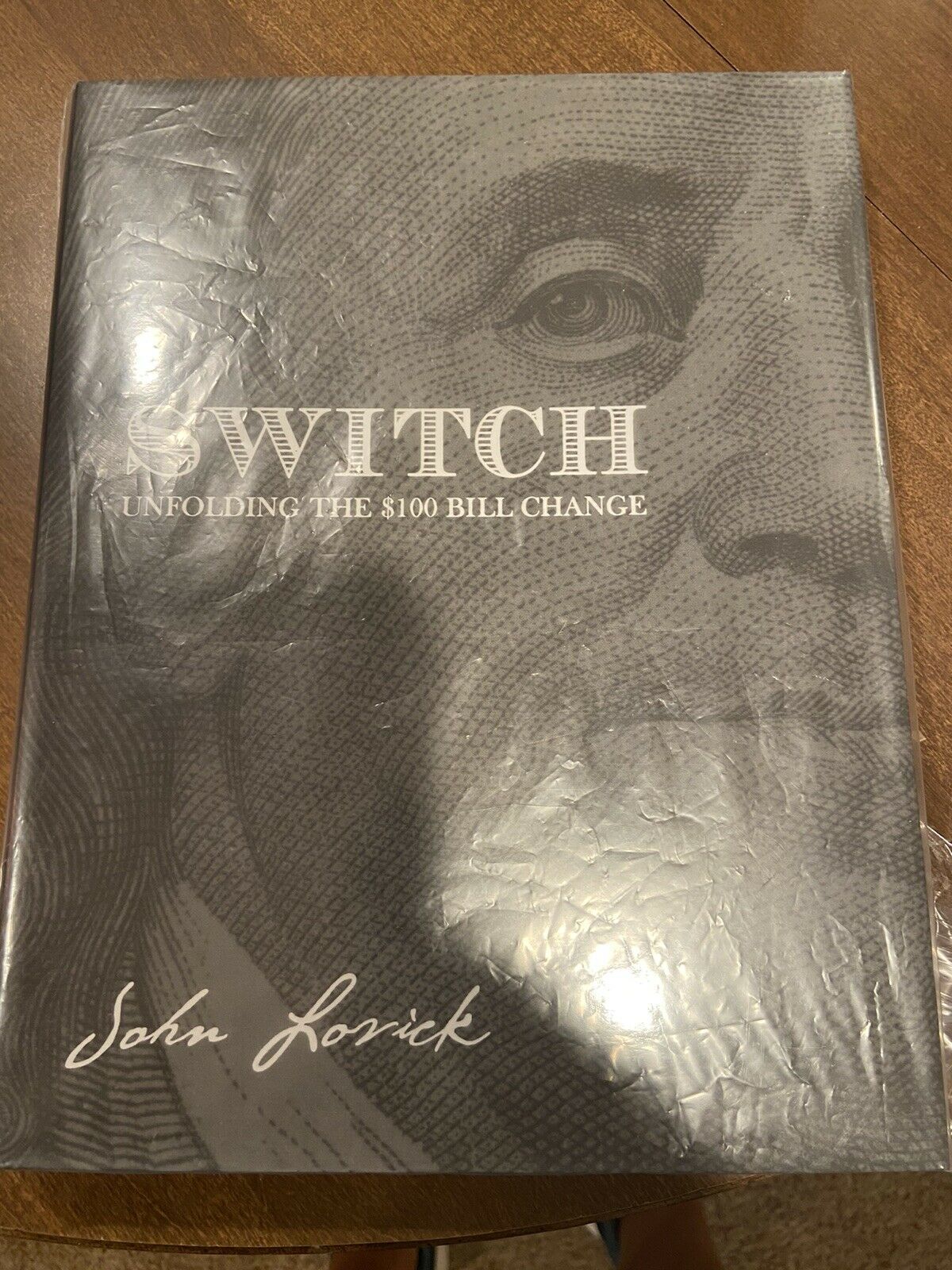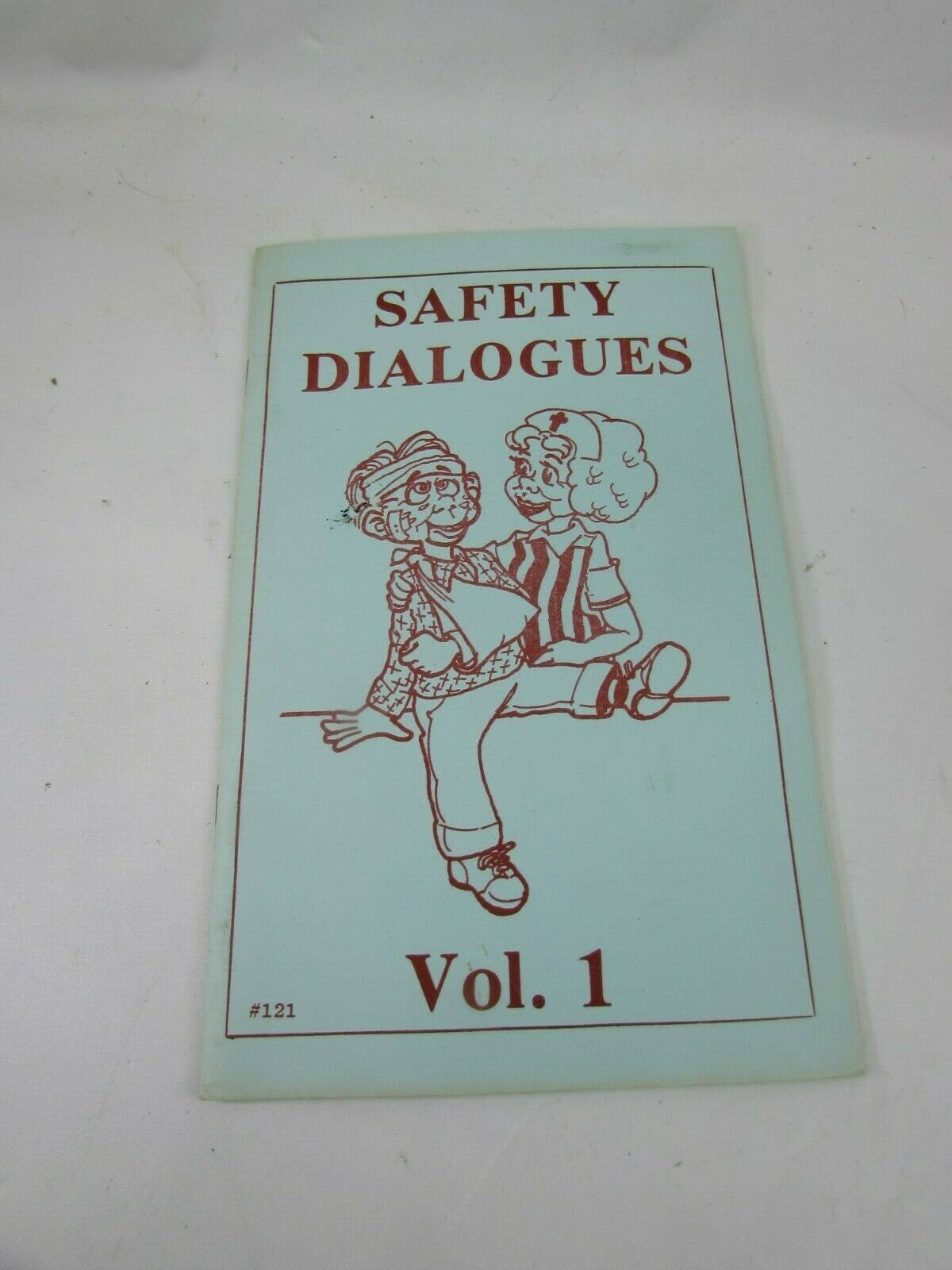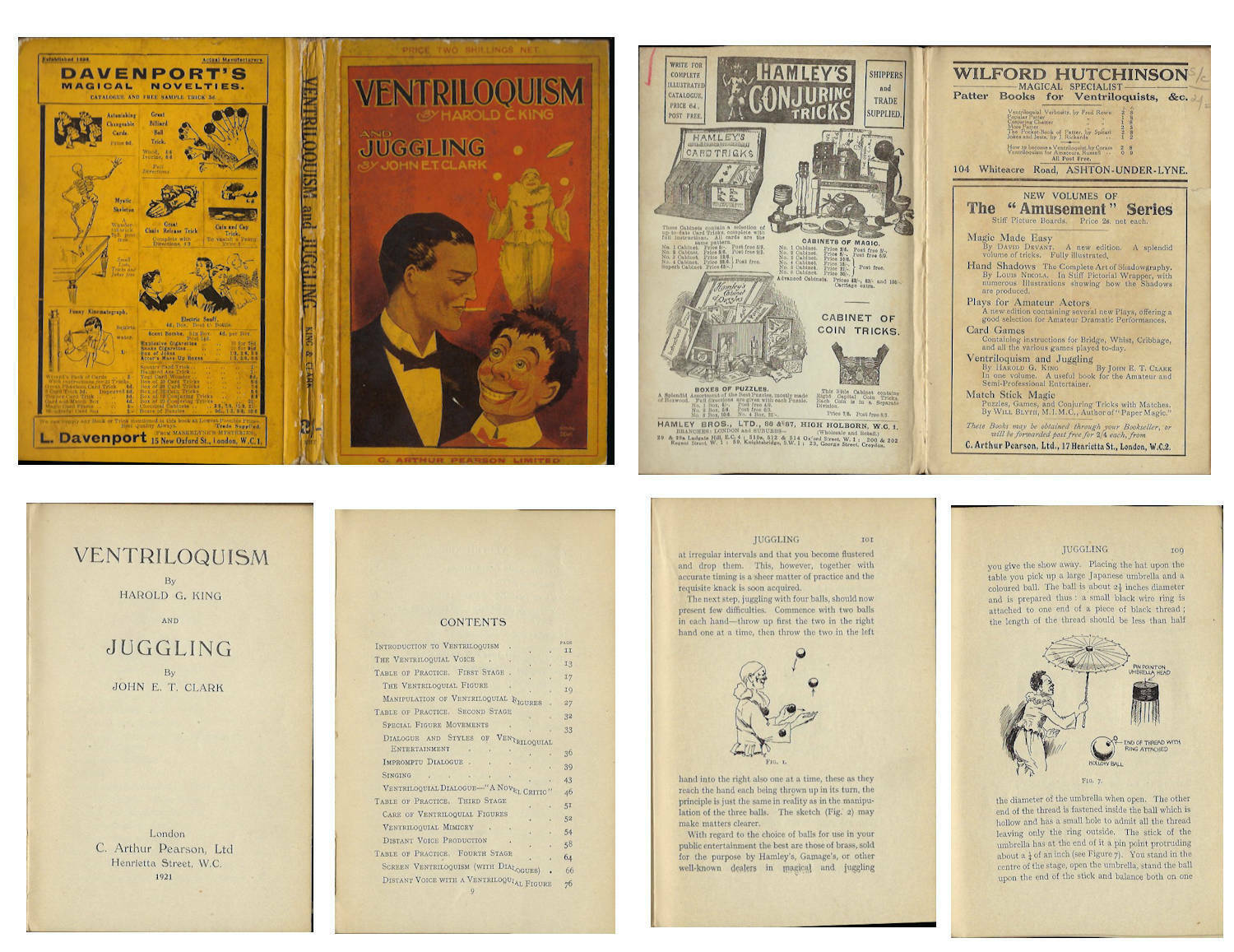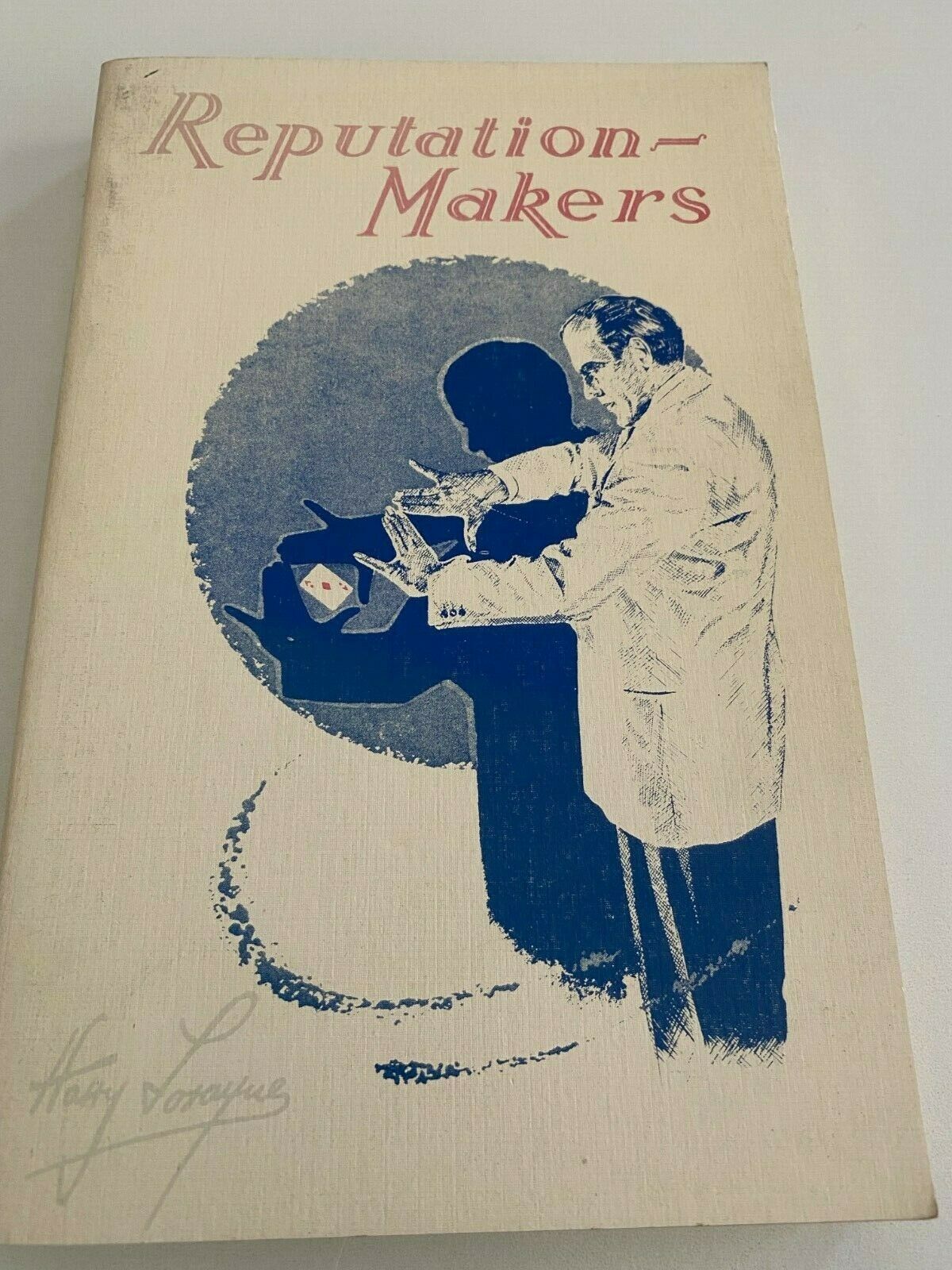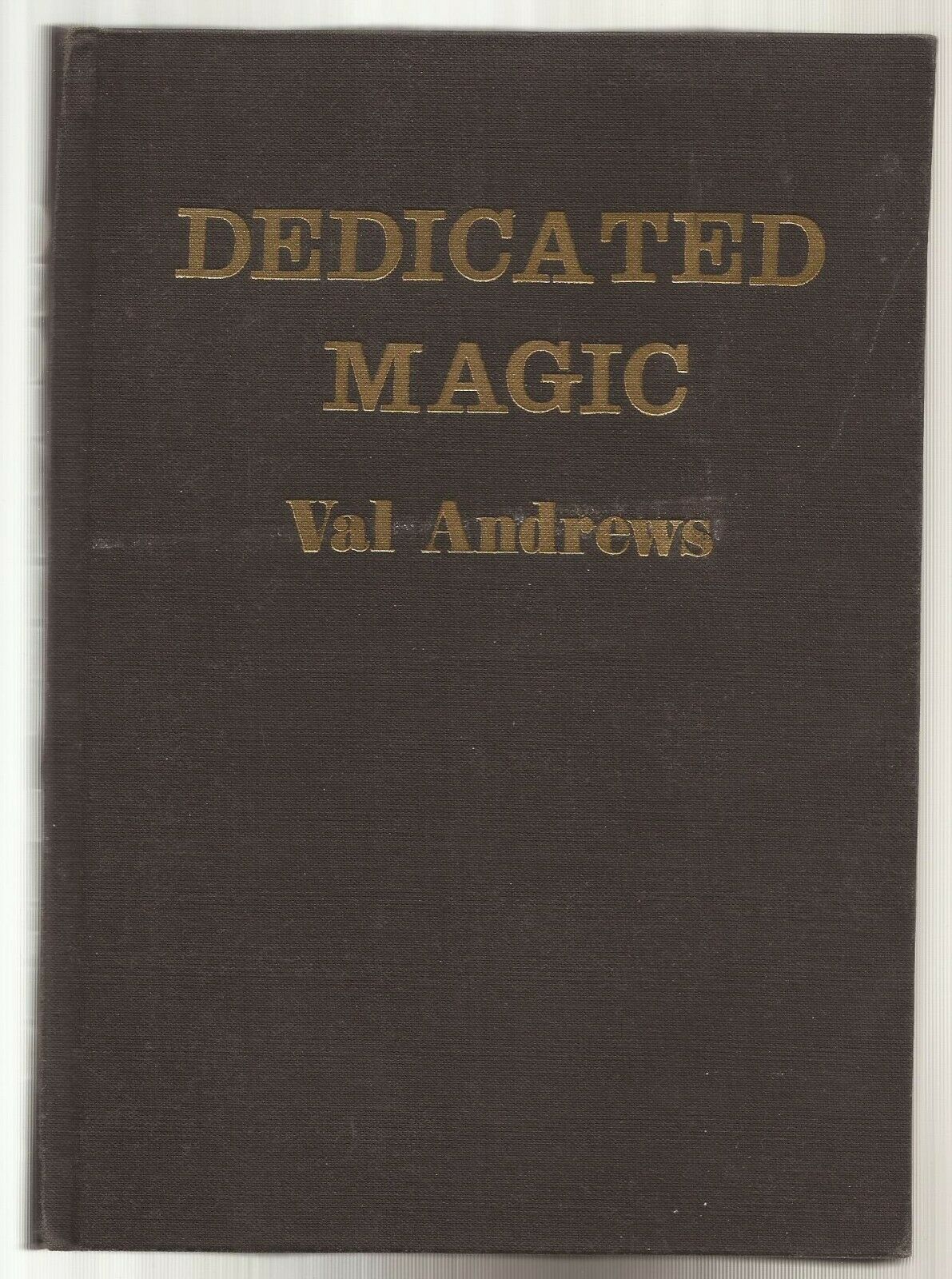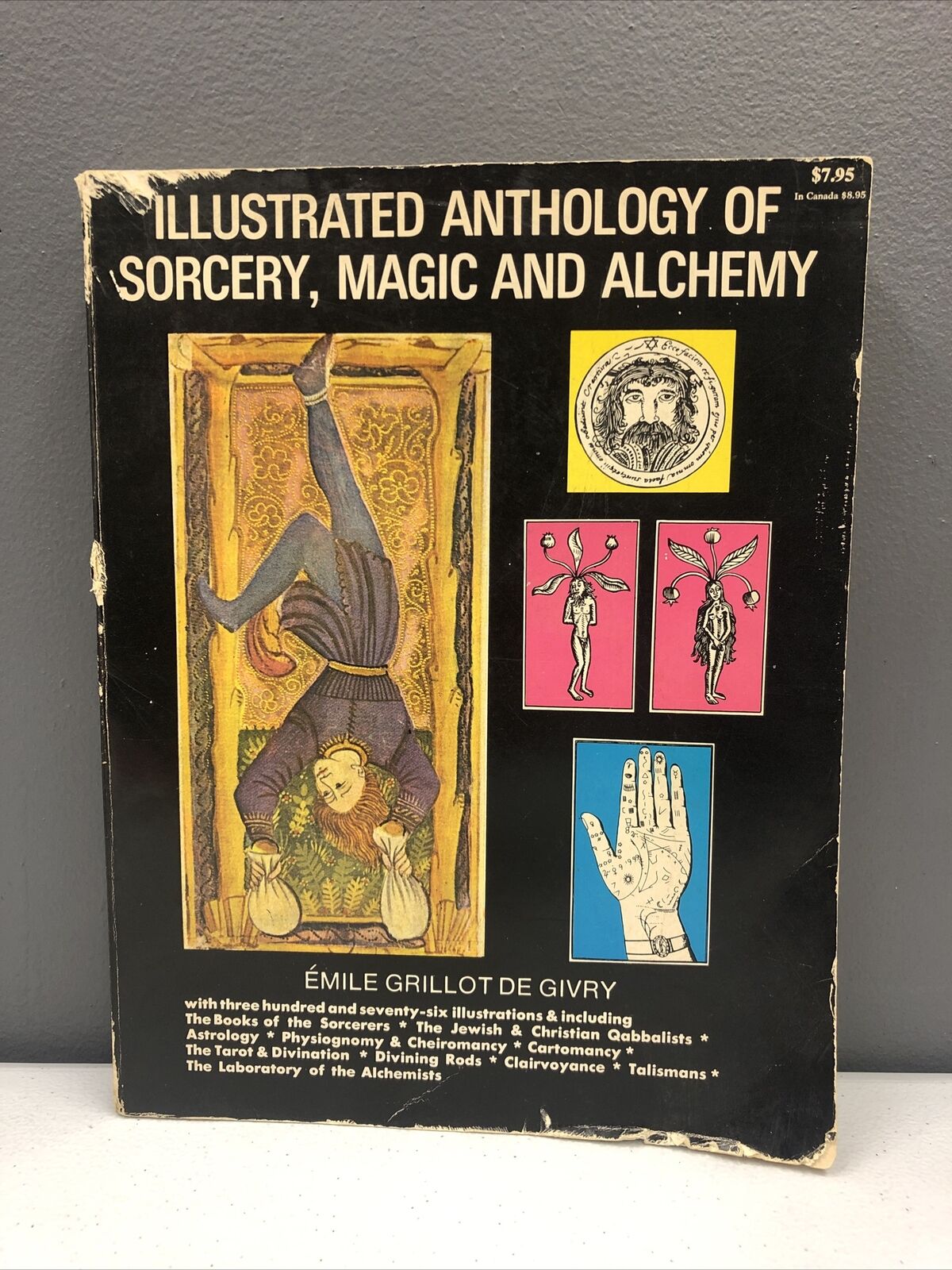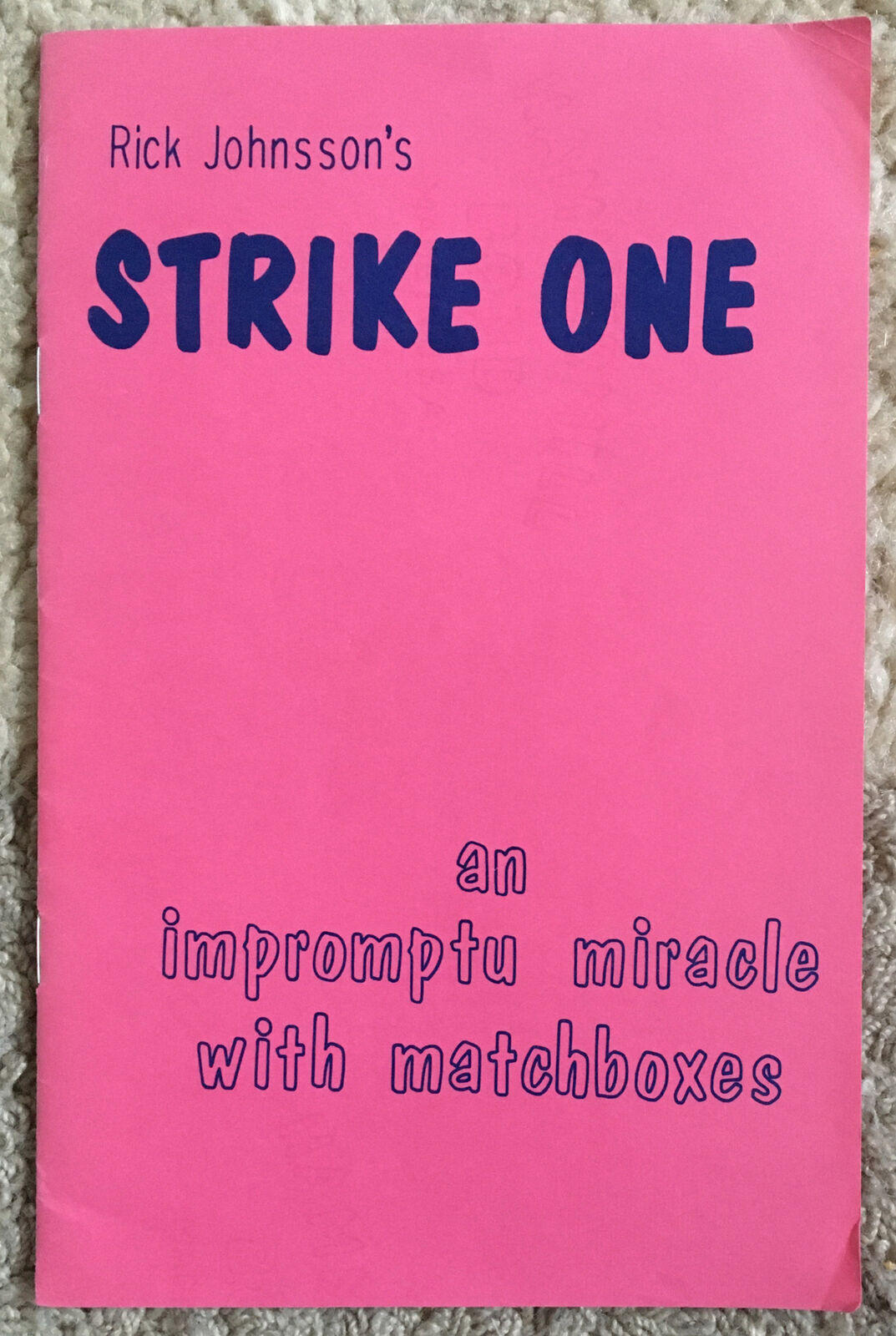-40%
Trouping With Dante-Trikosko-Magic Book 1st Ed-Stage Illusion-Biography-OOP
$ 47.49
- Description
- Size Guide
Description
Trouping With Dante:Travels With Dante's
Sim
Sala
Bim
in the Golden Age of Big Illusion Shows
Title:
Trouping With Dante
: Travels With Dante's
Sim
Sala
Bim
in the Golden Age of Big Illusion Shows
Author: Marion
Trikosko
ISBN-10: 0974468142
ISBN-13: 978-0974468143
Publisher: Squash Pub
Publication Date:2006
Hardcover
Book Size: 6.2 x 1 x 9 inches
Pages: 168 pages
Edition: 1
st
Edition
Book Condition: Excellent-Like New-Mint
Dust Jacket Condition: Excellent-Small sticker on back-See Photo!
In the golden age of big illusion shows, his was the most golden of all. He had been born Harry Jansen, but the world knew him as "
Dante, The Magician."
He played every continent on earth with one of the most magnificent magic shows of the twentieth century
Sim
Sala
Bim
was a spectacular extravaganza of magic, music and laughter. Every magic-smitten youth from Bangkok to Boston dreamed of being in the show. This is the memoir of one young man whose dream came true. Marion S.
Trikosko
spent two seasons as a stage assistant to the great man. Today, while excellent magicians still flourish, such huge and elaborate traveling shows as Dante's are extinct. What was the show like? How did it operate? What made Dante the celebrated magician he was, and a remarkable human being? What tricks and illusions did he perform, and what were their secrets? These and many other questions are answered in detail by
Trikosko
, whose extraordinary powers of observation and
rememberance
take us vividly behind the scenes. A gifted writer, he guides us revealingly through Dante's magic world and, along the way, gives entertaining and personal glimpses into his own. Hardbound and copiously illustrated, with a gorgeous full-color dust jacket. With an introduction by Lance Burton.
Contents
ix Acknowledgements
xi A
Matterof
Perspective Lance Burton
xv Prologue
1 I. Escape From Germany
2
2
. The Great White Way
5 3. Return To America
10 4. The Worlds Greatest
12 5. Dante Opens In Chicago
18 6. I Join The Show
22 7. My First Day
26 8. Jansen The Great
31 9. Thurston Presents Dante
39 10. Dante Plays Russia
42 11. Dante In Person
45 12. Life On The Road
50 13. Vaudeville
54 14. First Season Ends
60 15. The Big Four
68 16. Between Seasons
73 17. The Invisible Man
78 18. Chief
Illusionista
89 19. Arturo Montes
94 20. 1944-45 Season
97 21. Stage Presence
104 22. Mysteries Of The Air
108 23. Unexpected Surprises
112 24. Sawing A Woman In Half
116 25.
Fountania
123 26. Showmanship
127 27. Set Up/Tear Down
131 28.
NOrth
American Tour Ends
134 - End of an Era
137 - Final Curtain
139 - Epilogue
143 Extra Added Attractions
147 Riverview Park
147 Frances
150 Magicians I Have Seen
155 Routes and Theaters 1943-45
158 Full Evening Show Routine
160 Vaudeville Routine
161
Asrah
Patent
165 Index
Reviews
"Marion S.
Trikosko
has authored one of the finest historical biographies of a theatrical giant in the annals of magic history." --
MUM Magazine, May 2006
"Marion
Trikosko's
time with the Dante show was memorable - and we are fortunate that he remembers that time, so many decades later, with a photojournalists eye for real life detail. ...I can't imagine that any lover of magic's history won't also thrill at this lovely account." --
Genii Magazine, May, 2006
Reviewed by
Jamy
Ian Swiss
America's last great magicians of the Vaudeville era were Harry Jansen, better known as Dante, and his contemporary, Harry Blackstone, Sr. There are fewer and fewer surviving wit-nesses to the likes of Dante and Blackstone, and thus it is a treat when someone goes to the trouble to tell their story before such stories vanish altogether. Trouping With Dante is one such semi-precious jewel a firsthand account of Marion
Trikosko's
experience touring with the Dante show.
In 1943, Mr.
Trikosko
was an enthusiastic 16-year-old amateur magician. In Chicago he went to see the Dante show, then working in the post-Vaudeville era in which live acts performed between movie screenings. The young
Trikosko
returned to the the-
ater
a few days later, watched the show twice more, then walked down a back 11 alley and knocked on the backstage IP door, announcing his desire to join the 5 show. After a brief meeting, Dante him-
Ei
self offered the lad a salary of a week. Now all the boy had to do was convince his family to let him go and somehow he did. A week later he began a two-year adventure that left Mr.
Trikosko
memories
Nar
for a lifetime.
The author went on to spend two seasons on the road with Dante, the first one concluding in April of 1944 after 618 performances in a little more than nine months. Six months later he would return to the show for another run which concluded the following year. By 1948, when he was asked aboard again, Mr.
Trikosko
had discovered an interest in photography (which was to become his life's work), and turned down the invitation. As it turns out, that would be the final (and briefest) season in the show's history, after which Dante retired.
In between the author's own eyewitness accounts, he also relates Dante's life story. Many of the broadest brush strokes will already be known to fans of magic history, beginning with Dante's birth in Denmark and emigration to the U.S. at the age of six, continuing through his early magic career as The Great Jansen, to being hired as illusion builder to Howard Thurston then America's leading magician who would eventually send Jansen out in the world as Dante the Magician. The name of Dante actually came from another American magician, one Oscar
Eliason
, but 15 years after his death Thurston, developing a plan to send secondary magic companies out on tour, attached the defunct moniker to Jansen.
As a new hand on deck, the young Mr.
Trikosko's
back-stage duties were primarily confined to maintaining the livestock. It was a dirty job but someone had to do it, and it was counter-balanced by the excitement of his brief appearances on stage, moving props along with the pigeons, ducks, and a screeching piglet. His firsthand anecdotes of working backstage for "Pops," as the 23-person troupe affectionately called the show's tar, are what make this a warming and readable book. When the author recalls how the thread for the Floating Ball caused the feather on Dante's turban to twitch, or remembers standing by on stage as Dante struggles to stuff a woman (a local stooge) into the Sawing illusion in order to get the blade past her substantial posterior—the reader is swept across time and footlights to the place and the moment. It is a compelling trip. As Lance Burton writes in his introduction, "This is not a ho-hum, cradle-to-grave telling of the facts, filled out with stories from second-hand sources." This is a lively and very affectionate account of a boy's dream come true, complete with the eye-opening life lessons he received. Like most people suddenly faced with show business from the inside out, it wasn't quite what he expected, but it was certainly grand nonetheless.
Thus, neither is this an exhaustive biography, and despite the fact that there are several Dante titles extant, we have probably yet to see the definitive Dante volume. This book does include brief chapters on Dante's famous and beloved onstage assistant,
Moi-yo
Miller; about Dante's backstage assistant and eventually
Moi-yo's
husband, Arturo Montes; and about Dante's backstage show chief, George White. The portrait of Mr. White is particularly engaging. Howard Thurston hired Mr. White (who was in fact black) when the latter was a mere boy of nine years old, to operate Thurston's Rising Cards from backstage. White eventually ended up as Thurston's chief backstage man, where he worked with Dante when the latter was Thurston's builder. Eventually White would play the same role for Dante as he had for Thurston, and even continued to live at Dante's ranch after the magician's retirement. The book leaves us with a small but evocative mystery of what really happened when White left the ranch one day, never to be heard from again.
Mr.
Trikosko
of course also tells us about much of the magic of Dante's illusion show. He recounts how Dante improved
Goldin's
Sawing illusion for Thurston, enhancing the thin base concept, which Dante would also apply to the
Asrah
. However, this is not a detailed book about illusion design or history; after all, it was the
Asrah's
creator,
Servais
LeRoy
, who originated the "wedge base" principle for that very illusion. But in the "Extra Added Attractions" in this volume, the author also includes the details of Dante's patent on his version of the
Asrah
albeit that we do not get Mr.
LeRoy's
thoughts on the subject of that patent. The ongoing illusion wars between Thurston,
Selbit
,
Goldin
,
LeRoy
, and Dante are touched upon but not exhaustively addressed.
Other interesting magical accounts include that of Dante's remarkable
Fountania
production, which filled the stage with a multitude of water spouts, and the author's sometimes soggy role. There is an interesting description of Dante's barbershop illusion, billed in his program as The Un-
Sevilled
Barber, with a clever use of a
DeKolta
Chair principle. There are stories (and a diagram) of "Big Arthur," the (barely) portable trap that was installed in every stage Dante played on.
Show business is always hard work, but it was much harder in those days. There are times when you read a book like this and wonder at the drive that was necessary to keep its practitioners going. Dante, at age 28, made his first overseas trip with a company of 15 but virtually no money left in his pockets, yet somehow ended up spending more than three years touring the Far East and Australia before returning home. When Dante is past 60, during the author's time with the show, the company is doing five shows a day between movies, resetting the show behind the screen. In between those many years there is a tour in the Soviet Union which leaves Dante and company departing the country without payment or props (a trick Copperfield repeated in 1999), stranding them in Germany waiting for both (the money came sooner than the props, which took almost a month). There was a run in Manchuria with the cast wearing overcoats on stage to survive the cold. But there were plenty of good times, too as in London, where, the author recalls,
lalfter
the evening show, Pop's card-playing buddies, Horace
Goldin
, Les
Levante
,
Brunel
White, and the Australian escapologist, Murray, came over and played cards to the wee hours of the morning."
The personal tastes Mr.
Trikosko
reveals in this book are occasionally amusing such as his lack of appreciation (to put it mildly) for the great jazz drummer, Gene
Krupa
, whose legendary playing seemed to the author to be nothing more than "a waste of perspiration." Amid the section of "Extra Added Attractions" the author also pro-vides his personal recollections of the carnival midway at Riverview Park, including freaks, geeks, and a description of a
regurgitator
act who, to the best of my knowledge, appears to be none other than the legendary sideshow performer, The Great Waldo.
Mr.
Trikosko
, it turns out, became a successful photo-journalist, and a search of his name on the Internet presented me with a remarkable array of photographs taken in the era of civil rights activism, circa late 19605, including striking images of historically momentous moments and figures including Martin Luther King, Jr., Malcolm X, James Meredith, and President John F. Kennedy.
Marion
Trikosko's
time with the Dante show was memorable and we are fortunate that he remembers that time, so many decades later, with a photojournalist's eye for real life detail. I wish I had had such an adventure, but failing that, I enjoyed his magical trip down the passage of time, and I can't imagine that any lover of magic's history won't also thrill at this lovely account.
Dante Biographical Information
Harry August Jansen
aka
"Dante-The Magician"
Born October 3, 1883
Copenhagen, Denmark
Died June 15, 1955 (aged 71)
Harry August Jansen (October 3, 1883 – June 15, 1955 was a Danish-born entertainer who settled in the United States. He traveled the world as a professional magician under the name Dante the Magician. He was born on October 3, 1883 in Copenhagen, Denmark. Jansen came to St. Paul, Minnesota at the age of six with his family. The family's surname was Jensen
At the age of 16 Jansen made his stage debut under Charles Wagner. He then set off on a world tour for 5 years as The Great Jansen. In 1922, magician Howard Thurston, realizing Jansen's talent and possible competition to him, engaged Jansen to star in the #2 Thurston show. Thurston gave Jansen the stage name of Dante. The name came from the original Dante, Oscar
Eliason
(1869–1899), who had been killed in a tragic hunting accident in Australia years earlier. In 1925, Dante the Magician Inc. came into being with Thurston as co-owner. The 2nd unit Thurston show was built and co-produced by Jansen.
Dante was known throughout the world under the name Dante the Magician, working in vaudeville, burlesque, legitimate theatre, films, and in later years, television. Dante and his troupe, consisting of between 25 and 40 performers, made several global trips and appeared in many U.S. theaters. His stage trademark was to utter three nonsense words, "
Sim
Sala
Bim
" (taken from the lyrics of a Danish children's song, during his performances to acknowledge applause. He can be seen using these words in the Swedish 1931 feature
Dantes
mysterier
(Dante's Mysteries) and in the 1942 Laurel and Hardy comedy A-Haunting We Will Go. He also appeared as himself in the 1950 film
Bunco
Squad, and played a character role in Jean Renoir's The Golden Coach (1952).
In 1940 he produced and starred the Broadway revue
Sim
Sala
Bim
on the
Morosco
Theatre. With television, the public stayed home more often, and the world of variety theatre suffered drastically. As a result, Dante retired to Southern California in the late 1940s. He died at his ranch in Northridge, California, of a heart attack, at the age of 71.
Please examine the photos of this book. I have included photos of the index. I have also included photos of especially colorful, interesting or autographed pages. I will be happy to answer any specific question, just send me an Email!
Listing info courtesy of:
Magicref












